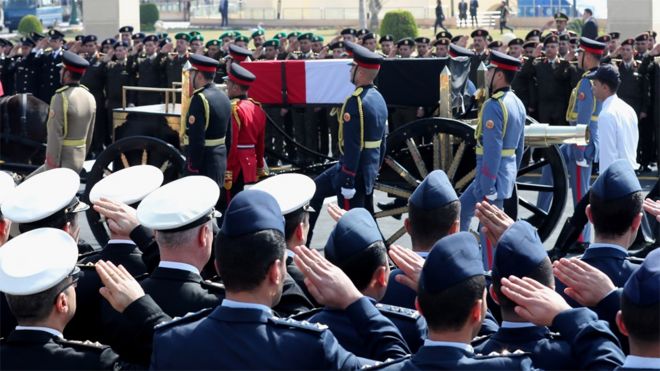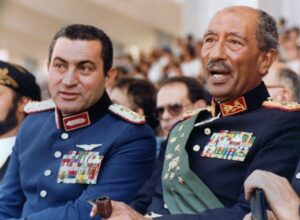
In Cairo, Egypt yesterday paid tribute to its former, and longest serving, president, Hosni Mubarak, two days after he died, on February 25th, aged 91.
Despite the service occurring amid tight security, the whole event was smoothly run and proceeded without incident. Mubarak’s body was transported from a mosque on the outskirts of the Egyptian capital to the family cemetery on a horse-drawn carriage. The funeral procession was led by his sons Gamal and Alaa Mubarak and the current president, Abdel Fatah al-Sisi, flanked by high ranking military officials as well as leading religious figures.
Sisi ordered the full military funeral as a mark of respect for the position held by Mubarak and the fact that he was the dominant figure of Egyptian politics in the late 20th and early 21st Century.

It is a mark of maturity for Egypt, on the world stage, that such and event went off without incident with the focus of attention being concentrated on the best aspects of Mubarak’s time as leader of the nation. Tribute was paid to Mubarak’s early career and political history and deliberately did not dwell on his more recent history, where he was eventually ousted from power during the 2011 Arab Spring Revolution.
Egypt clearly wants to close the book on its previous history, and the negative perception of previous social unrest, in order to move forward in this new chapter of national and international progress.
The world televised funeral was a good staging platform for a very powerful symbolic break with the past and a peaceful transition into a better future of presenting a more stable social and economic presence on the world stage.









